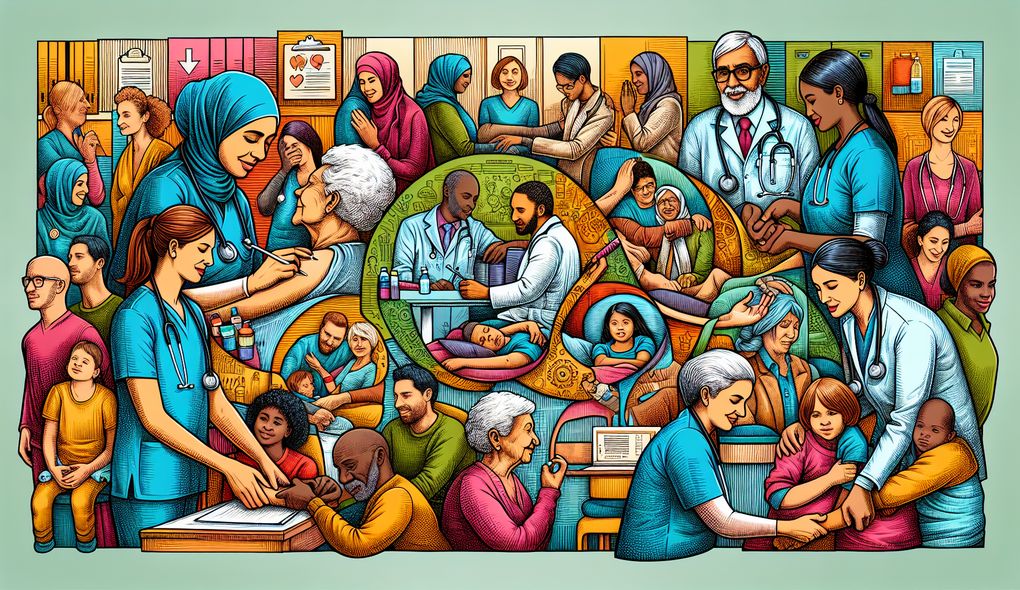How would you handle a situation where a patient refuses to follow the treatment plan you have recommended?
JUNIOR LEVEL

Sample answer to the question:
If a patient refuses to follow the treatment plan I have recommended, I would first try to understand the reason behind their reluctance. It could be due to various factors such as lack of understanding, fear, or cultural beliefs. I would take the time to explain the benefits of the treatment plan and address any concerns the patient may have. I would also involve the patient's family members or loved ones in the discussion, if appropriate. If persuasion doesn't work, I would consult with more experienced medical professionals or the patient's primary care provider for guidance on alternative approaches or strategies. Ultimately, my priority would be to ensure the patient receives the necessary care while respecting their autonomy and decision-making.
Here is a more solid answer:
If a patient refuses to follow the treatment plan I have recommended, I would approach the situation with empathy and patience. Firstly, I would engage in open and respectful communication to understand any concerns or reasons behind their decision. By actively listening and acknowledging their perspective, I can address these concerns and provide clear explanations of the treatment plan's benefits. If necessary, I would involve other members of the healthcare team, such as a social worker or psychologist, to provide additional support and guidance. It is crucial to maintain a non-judgmental attitude and respect the patient's autonomy throughout the process. In cases where the refusal poses a significant risk to the patient's health, I would consult with the patient's primary care provider or a senior healthcare professional to explore alternative treatment options while considering any legal and ethical implications. It is essential to document all interactions and decisions accurately, ensuring confidentiality and proper record-keeping.
Why is this a more solid answer?
The solid answer expands on the basic answer by emphasizing the importance of empathy, clear communication, and involving the healthcare team. It also highlights the need for documentation and adherence to ethical principles. However, it could provide more specific strategies for effective patient education and address the role of critical thinking in assessing the patient's decision.
An example of a exceptional answer:
When faced with a patient who refuses to follow the recommended treatment plan, I would employ a systematic approach to address the situation effectively. Firstly, I would gather information about the patient's concerns, preferences, and understanding of the treatment plan. By actively listening and using open-ended questions, I can identify any misconceptions or fears that may be influencing their decision. Armed with this information, I would tailor my communication to address their individual needs, providing education in a clear and concise manner. Visual aids and written materials can aid comprehension and reinforce key points. If the patient's refusal persists, I would collaborate with a multidisciplinary team, including the patient's primary care provider, mental health professionals, and social workers, to develop a comprehensive care plan that accommodates the patient's preferences and concerns while still ensuring their safety and overall well-being. It is essential to reevaluate and adjust the treatment plan as needed, taking into account the patient's feedback and evolving health condition. Throughout the process, I would maintain strict adherence to ethical principles, patient confidentiality, and accurate documentation.
Why is this an exceptional answer?
The exceptional answer demonstrates a comprehensive and systematic approach to handling the situation. It emphasizes gathering information, tailoring communication, and collaboration with the healthcare team. It also highlights the importance of ongoing evaluation and adjustment of the treatment plan. The answer addresses all the evaluation areas mentioned in the job description, showcasing strong clinical skills, critical thinking, emotional resilience, and commitment to ethical principles. It provides specific strategies for effective patient education and highlights the role of documentation in maintaining patient confidentiality.
How to prepare for this question:
- Familiarize yourself with common reasons why patients may refuse treatment, such as fear, lack of understanding, or cultural beliefs.
- Practice active listening and open-ended questioning techniques to effectively gather information from patients.
- Study effective communication strategies, including the use of visual aids and written materials to enhance patient education.
- Understand the roles and responsibilities of different members of the healthcare team, such as social workers and mental health professionals, and how they can support patients in making informed decisions.
- Review relevant ethical guidelines and regulations to ensure adherence to ethical principles, patient confidentiality, and accurate documentation.
What are interviewers evaluating with this question?
- Strong clinical skills with an emphasis on patient-centered care
- Critical thinking and problem-solving capabilities
- Emotional resilience and ability to manage stress effectively
- Commitment to adhering to ethical principles and maintaining patient confidentiality

